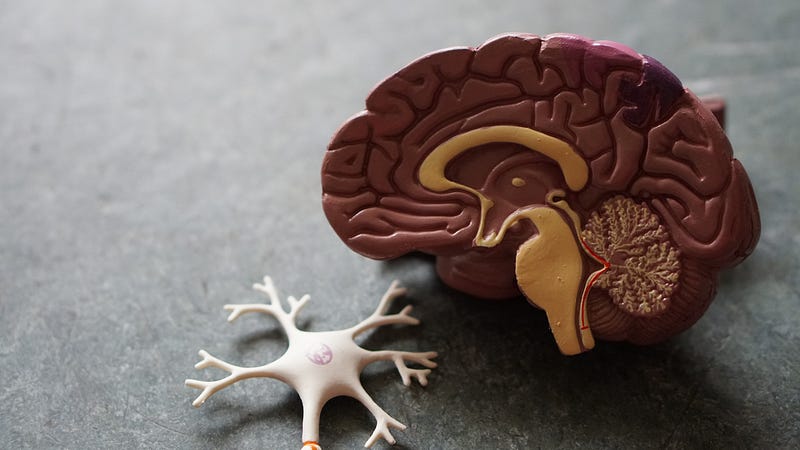Understanding the Complex Landscape of Alzheimer's Disease
Written on
Chapter 1: The State of Alzheimer's Disease
Currently, the World Health Organization estimates that over 55 million individuals are living with dementia globally. A significant majority, approximately 60–70%, are affected by Alzheimer’s disease (AD), which is primarily marked by cognitive decline and memory loss. This condition is associated with notable alterations in the brain, including the accumulation of beta-amyloid and tau proteins.

The amyloid plaques gather in the spaces between neurons, while neurofibrillary tangles form within the cells. However, the implications of Alzheimer’s extend beyond just these plaques and tangles. There is a breakdown of the blood-brain barrier, increased oxidative stress, mitochondrial dysfunction, and damaged microglia. Additionally, serotonin signaling is disrupted, inflammation escalates, and glucose metabolism becomes abnormal.
In essence, Alzheimer’s disease presents a complex challenge.
Numerous promising treatments are being investigated, ranging from probiotics and gut microbes to immune therapies and specialized small molecules. Lifestyle modifications also play a critical role in brain health.
Genetic factors contribute to the likelihood of developing AD, with the APOE gene being the most recognized. The APOE4 variant significantly heightens Alzheimer’s risk, while APOE2 offers some protection. Recent discoveries have brought to light other protective genetic variants, such as APOE3 Christchurch (R136S) and RELN-COLBOS.
Despite ongoing research, the absence of a definitive cure indicates that there might still be gaps in our understanding.
Chapter 2: Mapping the Alzheimer's Brain
So, how can we create a cellular-level atlas of the Alzheimer’s-affected brain?
A recent study involved an analysis of the brains, particularly the prefrontal cortex, of 427 older adults with varying stages of AD. Utilizing clinical data and postmortem samples, the researchers explored how different cell types and genes correlate with cognitive abilities and AD pathology. A modern technique known as single-nucleus RNA sequencing allowed them to investigate gene expression on a single-cell basis.
Healthy Brain Initiative Road Map, 2023-2027 | Alzheimer's Association
This video outlines the strategic plan of the Alzheimer's Association for the years 2023 to 2027, focusing on initiatives to improve brain health and support those affected by Alzheimer's.
Key Findings from the Study
- Cellular Diversity: Numerous cell types exhibited gene expression alterations linked to AD pathology, impacting processes like synaptic signaling, chromatin organization, lipid metabolism, and mitochondrial health. Both pre- and postsynaptic regions of neurons were influenced, indicating that synaptic degeneration may be crucial in AD progression.
- DNA Damage Response: Among those with severe AD, an increase in the expression of the cohesin complex, essential for DNA maintenance, was observed. This was associated with heightened activity of genes related to the DNA damage response, indicating a connection between genomic integrity and AD, potentially occurring early in the disease timeline.
- Cognitive Function: The study pinpointed genes linked to high cognitive performance across various excitatory neuron subtypes, emphasizing their role in synaptic function and fibroblast growth factor (FGF) signaling.
- Cellular Vulnerability: The researchers noted changes in the composition of cell types related to AD pathology, particularly a reduction in somatostatin inhibitory neurons, which are vital inhibitory neurons in the cortex.
- Preserved Cognitive Function: Encouragingly, two distinct groups of inhibitory neurons were found to be more prevalent in individuals with maintained cognitive abilities late in life. This hints at the potential role of these neurons in safeguarding cognitive performance as individuals age. Subtypes marked by RELN expression were notably more common among those demonstrating high cognitive resilience.
Despite these insights, the atlas remains incomplete. The analysis of rarer cell types presents challenges due to limited sample sizes, and the complexity of gene expression can vary due to factors that may not be measurable in post-mortem samples or through clinical assessments like memory tests.
Healthy Brain Initiative Road Map in Action: Making an Impact in Communities
This video showcases the real-world impact of the Healthy Brain Initiative, demonstrating how community efforts are making strides in addressing Alzheimer's and supporting brain health.
In conclusion, while this cellular atlas represents our most comprehensive understanding of Alzheimer’s to date, further efforts are needed to uncover the critical areas that could lead us to effective treatment strategies.